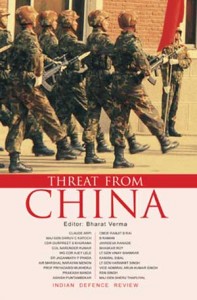The problem, according to the Report, is that “there are many people who have learned how to use stability to protect themselves”.
This Report arrives at similar conclusions than the 70,000 character petition sent by the previous Panchen Lama to Premier Zhou Enlai in 1962, for which the former spent 17 years in jail.
The CCP General Secretary Hu Yaobang had also presented a report in the same vein after a visit to Lhasa in May 1980. He was soon removed from the political scene, though his disciple, Zhao Zyiang continued as Premier till the Tiananmen events.
In a recent interview, Prof Samdhong Rinpoche told us that some 500 reports, articles, websites, etc criticizing the Chinese government have come to the notice of his Administration. These reports circulate freely in China. It is truly a sign of change (or at least an increase in the ‘chaos’).
Red and Experts?
Interestingly a few months back, the CCP Organization Department (CCPOD) launched an unprecedented large-scale campaign to ‘re-train’ grassroots-level personnel ranging from civil servants to police officers and judges. The objective is to prepare a new generation of Party cadres who will be ‘red and expert’. In Communist jargon, it means that they will be taught to be politically correct, morally honest and professionally competent. Unfortunately, ‘redness’ will continue to prevail over ‘expertise’ and the discontentment of the masses (whether in Tibet or in the main land) will keep increasing, rendering the system more and more instable and ‘chaotic’. But it is a catch 22 situation for the leadership.24
Also read: China’s threat perception
Recently, President Hu Jintao has begun the process to select the Sixth Generation of leaders who will lead China after a decade or so. Strangely they all, like him, belong to the Chinese Youth League (the Party School). In other words, all Red!
 The new aristocracy will surely be well equipped to suppress the aspirations of the different nationalities and quell dissident voices, unless the Middle Kingdom, without the safety valve called democracy, implodes under its own contradictions.
The new aristocracy will surely be well equipped to suppress the aspirations of the different nationalities and quell dissident voices, unless the Middle Kingdom, without the safety valve called democracy, implodes under its own contradictions.
In the meantime, the PLA and the old Generals like Chi Haotian will keep advocating an ever harder line. The recent bashing bout against India is part of this scenario. It is probable that they will keep lashing out at India and other neighbors who refuse to toe their line of thought. But this latent instability is the Achilles’ heel of the Middle Kingdom.
Notes
- Already Napoleon, one of greatest military strategists of all time, had prophesized: “When China awakes, the world will tremble”. He knew the propensity of the Chinese to dominate other nations and people.
- Zhongnanhai is a residential and office complex in Beijing, adjacent to the Forbidden City. The top leadership of the Party resides inside this compound.
- The Global Times editorial, June 11, 2009, see http://opinion.globaltimes.cn/editorial/2009-06/436174.html
- The People’s Daily, Veiled threat or good neighbor? June 19, 2009 see: http://english.peopledaily. com.cn/90002/96417/6682302.html
- Just a few years after Pakistan was created, on the occasion of the establishment of the diplomatic ties between China and Pakistan, Chairman Mao spoke of the millennia-old friendship between the two nations! Mao usually had a better sense of history.
- Several recent articles tend to prove that India is right to wary about the Islamabad-Beijing axis. See for example Deepening Naval Cooperation between Islamabad and Beijing, China Brief, Volume: 9 Issue: 13, June 24, 2009 by Itamar Lee. Available at: http://www.jamestown.org/programs/chinabrief/single/?tx_ttnews[tt_news] =35173&tx_ttnews[backPid]=25&cHash=a99c92ed79.
- These polls mean nothing in China, except to pass a message from the Chinese Government to the Indian public and politicians.
- The poll was probably ordered by the Party, as part of their plans to intimidate India.
- This was after India announced it would dispatch additional troops to Arunachal Pradesh.
- See: https://www.indiandefencereview.com/spotlights/is-nazi-china-emerging/
- Let us not forget that this individual was Defense Minister of China till 2003. It is difficult to imagine a former Indian Defense Minister speaking this language. When George Fernandes dared to say that China was perhaps Threat No 1 for India, the media began immediately to scream and the opposition asked for his resignation.
- After all, China built the Great Wall to protect itself against the ‘barbarians’ from outside. This included ‘nationalities’ like the Tibetans, Uyghurs, etc.
- Baba Phuntsok Wangyal, Witness to Tibet’s History, (New Delhi, Paljor Publication, 2007). It contains three letters written by the author to President Hu Jintao.
- For example by not imposing the Chinese language over a ‘nationality language’ such as Tibetan.
- See Interview at http://sify.com/news/imagegallery/galleryDetail.php?id=jgyaKPdjjfd &title=China_s_change_is_for_good_Tibetan_PM.
- In spite of its own aberrations, like leaders installing statues of themselves, or shifting from one party to another with every monsoon.
- China Brief, Volume: 9 Issue: 13, June 24, 2009.
- In China, the State and the Party are one and the same thing.
- Such as banning search engines or filtering websites, blogs and personal mail.
- Translation of the report is available at http://www.savetibet.org/media-center/ict-news-reports/bold-report-beijing-scholars-reveals-breakdown-china%E2%80%99s-tibet-policy.
- Several members of this think-tank attended the prestigious Beijing University Law School.
- Note a similarity in the relation with India: there is a fascination for the Indian system of governance and at the same time, Beijing bitterly complains about the lack of gratitude from India towards the Great Han nation.
- A few days before the beginning of the riots in Tibet.
- The last-minute decision to postpone the controversial filtering software on computers sold in China is one of the many examples of the dichotomy in which the Chinese leaders are caught and in one way of the ‘chaos’.




